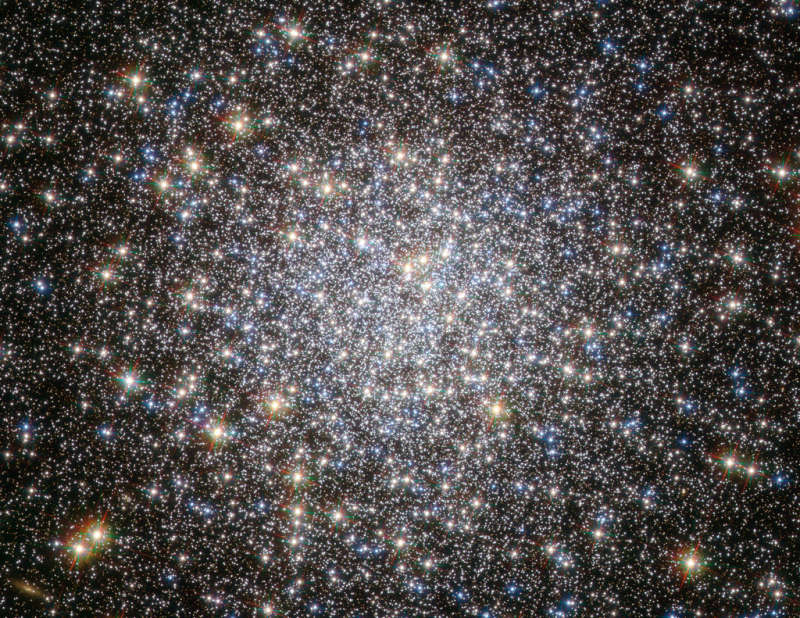
|
Explanation: "Beautiful Nebula discovered between the Balance [Libra] & the Serpent [Serpens] ..." begins the description of the 5th entry in 18th century astronomer Charles Messier's famous catalog of nebulae and star clusters. Though it appeared to Messier to be fuzzy and round and without stars, Messier 5 (M5) is now known to be a globular star cluster, 100,000 stars or more, bound by gravity and packed into a region around 165 light-years in diameter. It lies some 25,000 light-years away. Roaming the halo of our galaxy, globular star clusters are ancient members of the Milky Way. M5 is one of the oldest globulars, its stars estimated to be nearly 13 billion years old. The beautiful star cluster is a popular target for Earthbound telescopes. Of course, deployed in low Earth orbit on April 25, 1990, the Hubble Space Telescope has also captured its own stunning close-up view that spans about 20 light-years across the central region of M5. Even close to its dense core the cluster's aging red and blue giant stars and rejuvenated blue stragglers stand out in yellow and blue hues in the sharp color image.
|
January February March April May June July August September October November December |
| ||||||||||||||||||||||||||||||||||||||||||||||||
NASA Web Site Statements, Warnings, and Disclaimers
NASA Official: Jay Norris. Specific rights apply.
A service of: LHEA at NASA / GSFC
& Michigan Tech. U.
Based on Astronomy Picture
Of the Day
Publications with keywords: M 5 - globular cluster
Publications with words: M 5 - globular cluster
See also:
- APOD: 2025 December 28 Á NGC 1898: Globular Cluster in the Large Magellanic Cloud
- APOD: 2025 November 26 Á Globular Cluster M15 Deep Field
- APOD: 2025 September 5 Á 47 Tucanae: Globular Star Cluster
- APOD: 2025 August 14 Á M13: The Great Globular Cluster in Hercules
- APOD: 2025 July 26 Á Globular Cluster Omega Centauri
- NGC6366 vs 47 Ophiuchi
- Messier 2
